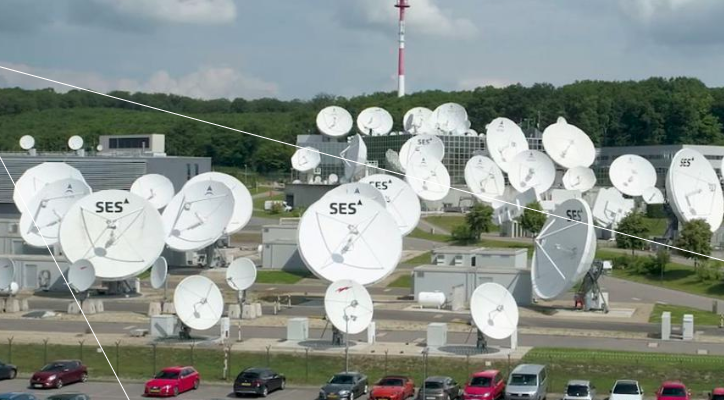SES hit by declining video business
 Satellite operator SES last week reported first half revenues of €961.4 million, down 5.1% at constant currency, with video revenues plummeting by 9.9% to €658.5 million in what the company admitted was a “challenging” market for video services.
Satellite operator SES last week reported first half revenues of €961.4 million, down 5.1% at constant currency, with video revenues plummeting by 9.9% to €658.5 million in what the company admitted was a “challenging” market for video services.
EBITDA was €584.5 million, down 8.4% at constant currency.
Despite the headline figures, CEO Steve Collar described the results as “a solid first six months with results in line with our expectations”. He highlighted growth in networks and strong cost control as well as progress in “reshaping” the company to meet new market needs.
Collar also said that the C-Band Alliance, the satellite operator consortium working towards the re-farming of C-band spectrum for mobile applications in the US, had made “further progress” towards its goal of realising additional revenue while balancing the requirements of broadcast and mobile businesses.
SES was delivering 8,292 TV channels to viewers around the world as of June 30. This represented an increase of 4% year-on-year, with a reduction in North American TV channels being more than compensated by the expansion of new channels in international and eastern European markets, as well as further HD adoption in Western Europe. HD channels numbered 2,845, up 3%, while SES also aired 43 commercial UHD channels as of June 30, up13%.
The results prompted analysts at investment bank Berenberg to comment that the numbers were “close enough” to its own target “to provide reassurance that things are not deteriorating more than expected”.
However, said Berenberg, there is “a risk that SES will not hit guidance without significant periodic revenue which is unpredictable”
The analysts said that they expected video revenues for the full year to be around €1.22 billion, just below the low end of guidance on a constant currency basis, while SES still had a lot of work to do to make up ground in its networks business.
Berenberg also noted that there had recently been “more noise from opponents of the C-Band Alliance’s proposal” in the US, with SES management now conceding that some of the auction proceeds from the re-farming of spectrum would go to the US government, rather than exclusively to the satellite operators.



